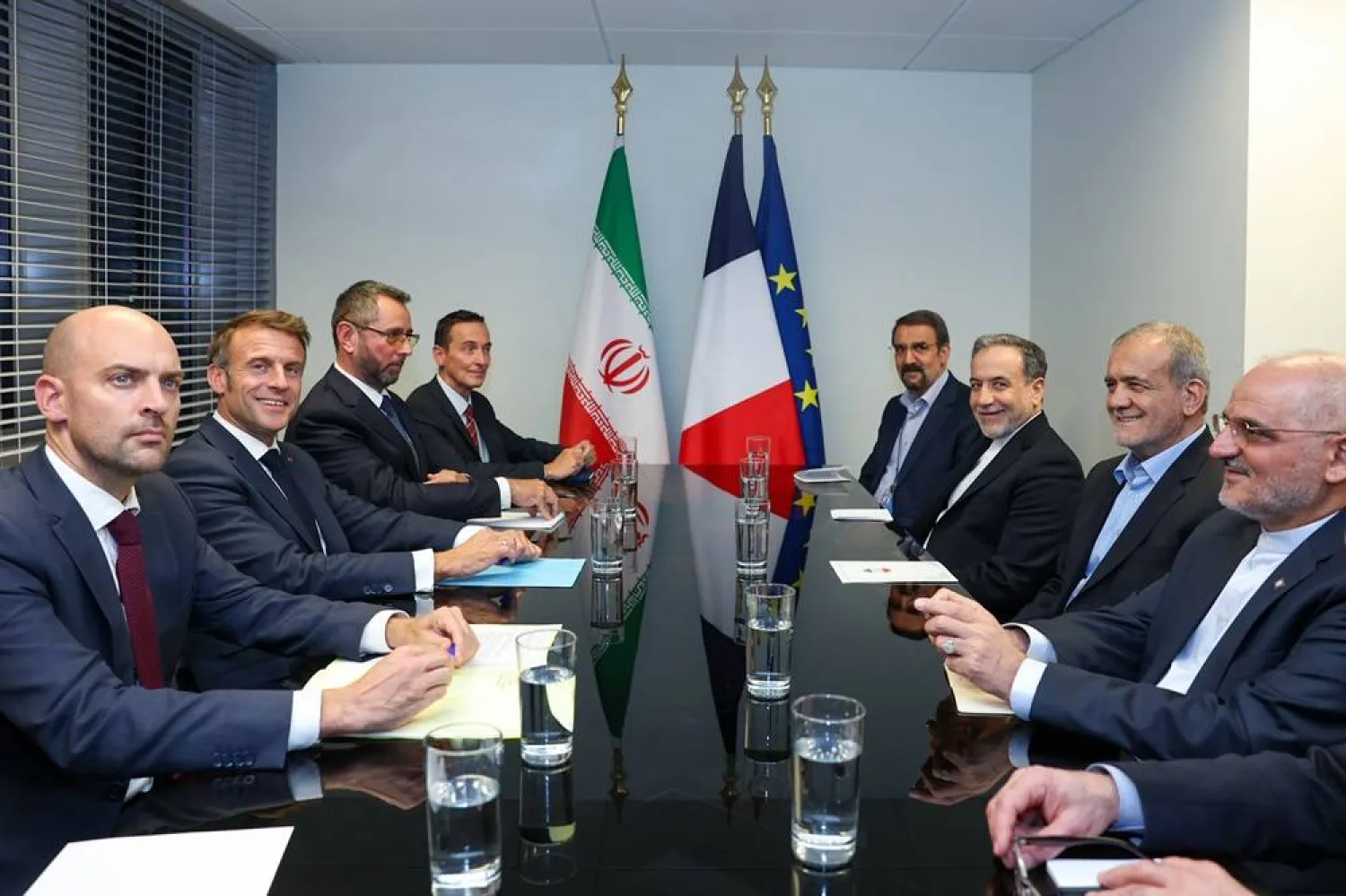French President Emmanuel Macron on Tuesday pressed Iran's new president to use his influence to dial down soaring tensions in Lebanon, where Israel is striking Tehran-backed Hezbollah.
Macron met with Masoud Pezeshkian, a self-styled reformist in a cleric-run state which Israel sees as its archenemy, on the sidelines of the annual UN General Assembly as casualties mounted in Lebanon.
Macron "highlighted the responsibility of Iran to support a general de-escalation and use its influence with destabilizing actors," an Elysee statement said, in a clear reference to Hezbollah.
Macron has already spoken twice by telephone with Pezeshkian as tensions rose between Israel and Hezbollah, the Lebanese Shiite movement backed by Iran.
On August 7, Macron urged the Iranian president to avoid reprisals and work to prevent a military escalation after Hamas political chief Ismail Haniyeh died in a presumed Israeli operation as he visited Tehran for Pezeshkian's inauguration.
Pezeshkian on Monday cast Israel as seeking conflict, saying Iran held back on retaliating after Western powers spoke of progress in reaching a ceasefire in Gaza.
Macron also pressed Pezeshkian after Western nations said Tehran supplied missiles to Russia, leading European powers to impose sanctions that targeted air links.
Macron "warned the Iranian president against the country's continuation of support for Russia's war of aggression in Ukraine," the Elysee said.
Pezeshkian, in his meeting with reporters, denied that Iran supplied missiles to Russia and said that his country opposed Moscow's "aggression" against its neighbor.
Pezeshkian has cast himself as a moderate. The United States has publicly voiced skepticism about dealing with him, doubting how much influence he carries in a system where Supreme Leader Ali Khamenei ultimately calls the shots.
Macron also asked for the release of three French nationals imprisoned in Iran.









